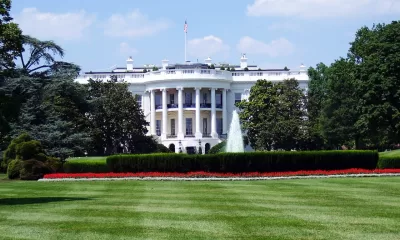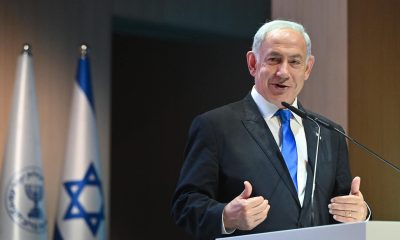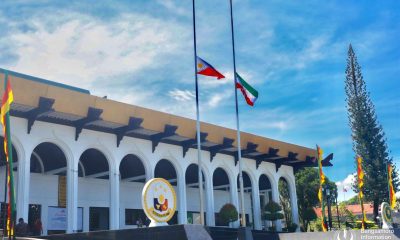Headline
Myanmar leader, other ruling party members detained

ANKARA – Myanmar’s leader Aung San Suu Kyi and other senior members of the ruling National League for Democracy (NLD) party were reportedly detained early Monday.
The detention of Suu Kyi, President Win Myint, and other senior figures follows days of rising tensions between the military and civilian government, said NLD spokesperson Myo Nyunt.
It also awakened fears of a military coup following an election the army claims was fraudulent.
“I want to tell our people not to respond rashly and I want them to act according to the law,” Nyunt said.
He added that he also expects to be detained
As the debate continued in the country over the results of the Nov. 8, 2020 elections, the army’s chief of staff announced on Jan. 27 that the Constitution could be terminated if the election laws were not properly enforced.
In the capital city of Naypyidaw and Yangon early Monday, soldiers descended on streets, and telephone and internet lines were cut off in Naypyidaw.
In addition, the families of ministers in 14 regions said the ministers had been “taken” from their homes by soldiers.
Myanmar’s parliament expected to open
Myanmar’s parliament had been expected to open Monday in the shadow of the “election rigging” debate.
UN Secretary-General Antonio Guterres’ spokesman, Stephane Dujarric, said in a statement on Jan. 29 that Guterres was “following with great concern the latest developments” in Myanmar, urging all parties to “refrain from all forms of provocation, respect the results of the Nov. 8 general election and adhere to democratic norms.”
Chief of staff: Constitution can be repealed
Myanmar’s Election Commission has denied allegations that the military rigged the results of the election, resulting in the victory of Suu Kyi’s party on Jan. 29.
Myanmar’s military chief Min Aung Hlaing said on Jan. 27 that the Constitution could be dissolved if the election laws were not properly enforced.
But a statement on Jan. 30 by Myanmar’s army, the Tatmadaw, argued that Hlaing’s statement was not a threat of a “coup.”
On Nov. 26, 2020, the main opposition Union Solidarity and Development Party (USDP), supported by the military, called for a “recount of the votes” in the election.
The NLD, led by Suu Kyi, won 346 seats in the 642-seat National Assembly, reaching a majority capable of forming a government.
The USDP came in second with 25 seats, while the Shan Nationalities League for Democracy (SNLD) party, which represents ethnic groups in Shan state, came in third with 15 seats.
In Myanmar, a constitution drafted by the military in 2008 prevents the ruling party from gaining control of parliament.
The army gets a quota of 25 percent of parliament seats and some key ministries exercise direct control over the government because they are in the hands of the military.
Myanmar’s Senate, governed by a bicameral parliamentary system, consists of 224 members, and the House of Representatives has 440 members.
Nigel Adams, Britain’s Minister of State for Asia, said elections in Myanmar were blocked in areas with minorities and Myanmar officials should hold “free and fair elections” there at the first opportunity.
The EU also called on the Myanmar government to include all ethnic, religious, and minority groups, including Arakanese Muslims, in the democratic process in the country.
In the Nov. 8 elections, there were 37 million voters, 5 million of whom voted for the first time, while around 7,000 candidates competed for seats in a total of 1,171 national and local councils.



























